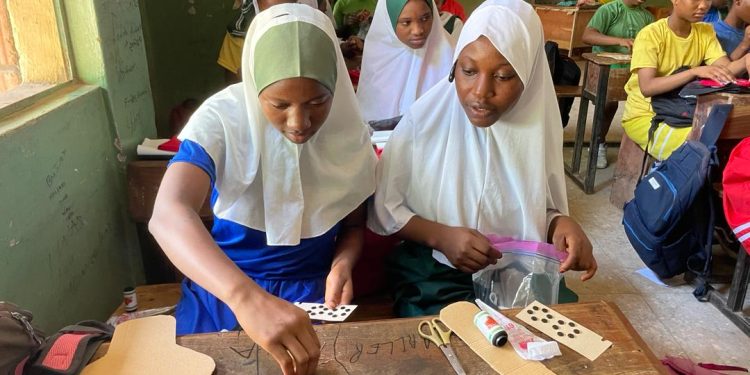Stakeholders have called for the free distribution of sanitary towels to school girls similar to the free distribution of condoms to arrest the spread of HIV and AIDS. Those who spoke with the News Agency of Nigeria (NAN) in Abuja said the move would bring relief to parents and guardians of the girls, considering current economic hardships.
NAN reports that the cheapest pack of sanitary towels, containing seven or eight pieces, was sold at between N450 and N900 between December 2023 and January 2024. The same pack currently sells at between N600 and N1, 200 depending on the brand.
Experts say sanitary pads should be changed after every eight hours, meaning a minimum of two packs is needed for a menstrual period of five days.
Stakeholders argued that government should devise sustainable measures for the continuous supply of sanitary towels, particularly in public schools, to encourage school attendance by girls.
According to UNESCO, one in 10 girls in Sub-Sahara Africa misses school during her menstrual cycle, accounting for up to 20 per cent of the school calendar.
Stakeholders who spoke with NAN also lamented that the burden of provision of sanitary pads by parents and guardians had added to the economic and sociocultural barriers that girls faced.
A public school teacher, Mrs Ruth Duniya, said many girls in lower basic schools were mostly less-privileged and could not afford sanitary pads.
She said such girls often used alternatives which were usually unhygienic and had adverse effects on their health in the long run.
Duniya told NAN that the free distribution of pads would imbue in the girls the confidence to participate in classroom activities, as their alternatives often left their school uniforms stained with blood.
A gender advocate, Ms Elizabeth Gwamzhi, noted that menstruation is a biological factor that girls must contend with.
She argued that if the male gender could get free condoms, school girls should get free sanitary pads.
“Difficulties in going to school by girls should be treated like a pandemic,’’ she submitted.
Another gender advocate, Ms Roseline Oyo, said sanitary towels should not only be given free to school girls, but should be given to all menstruating women or sold at subsidised rate.
In her submission, Executive Director of an NGO, Focusing on Women and Girls Initiative for Positive Change, Mrs Rifkatu Bello, noted that sexual intercourse was often perceived as luxury.
She noted that while condoms were mostly distributed for free menstruation products were expensive.
She also argued that governments should provide free sanitary pads to school girls to build their confidence and make school a safe haven for them while in their menstrual periods.
Similarly, Executive Director of another NGO, Girl Child Education International, Mrs Keturah Shammah, said governments should prioritise promoting girl-child education through the distribution of pads, particularly in rural areas and urban suburbs.
Shammah urged governments to be intentional in formulating policies that provided for sustainable schemes for the distribution of sanitary towels, and should consider providing reusable pads for school girls.
In her remarks, Mrs Nene Dung, Chairperson of Plateau chapter of the Nigeria Association of Women Journalists, also decried the high cost of sanitary towels.
She said the prohibitive costs had led to the use of unhygienic rags and tissue papers by the less-privileged.
She, however, commended the Federal Government for introducing the Adolescent Girls Initiative for Learning and Empowerment (AGILE) project, a World Bank initiative aimed at promoting girl child education.
Dung urged state governments to create similar programmes in their ministries of women affairs to promote girl child education.

